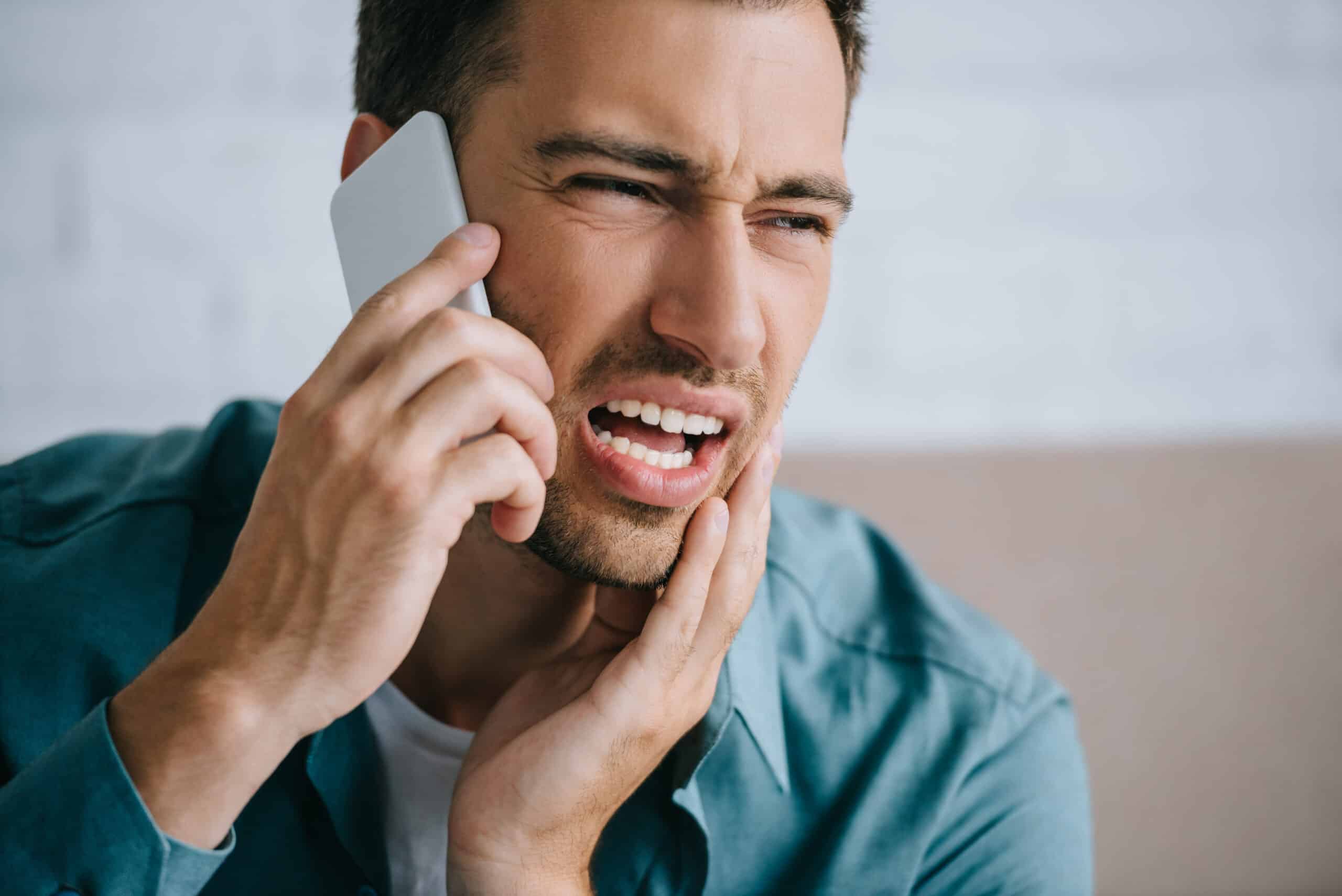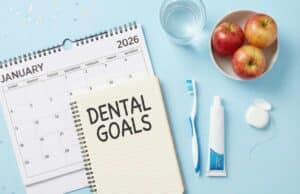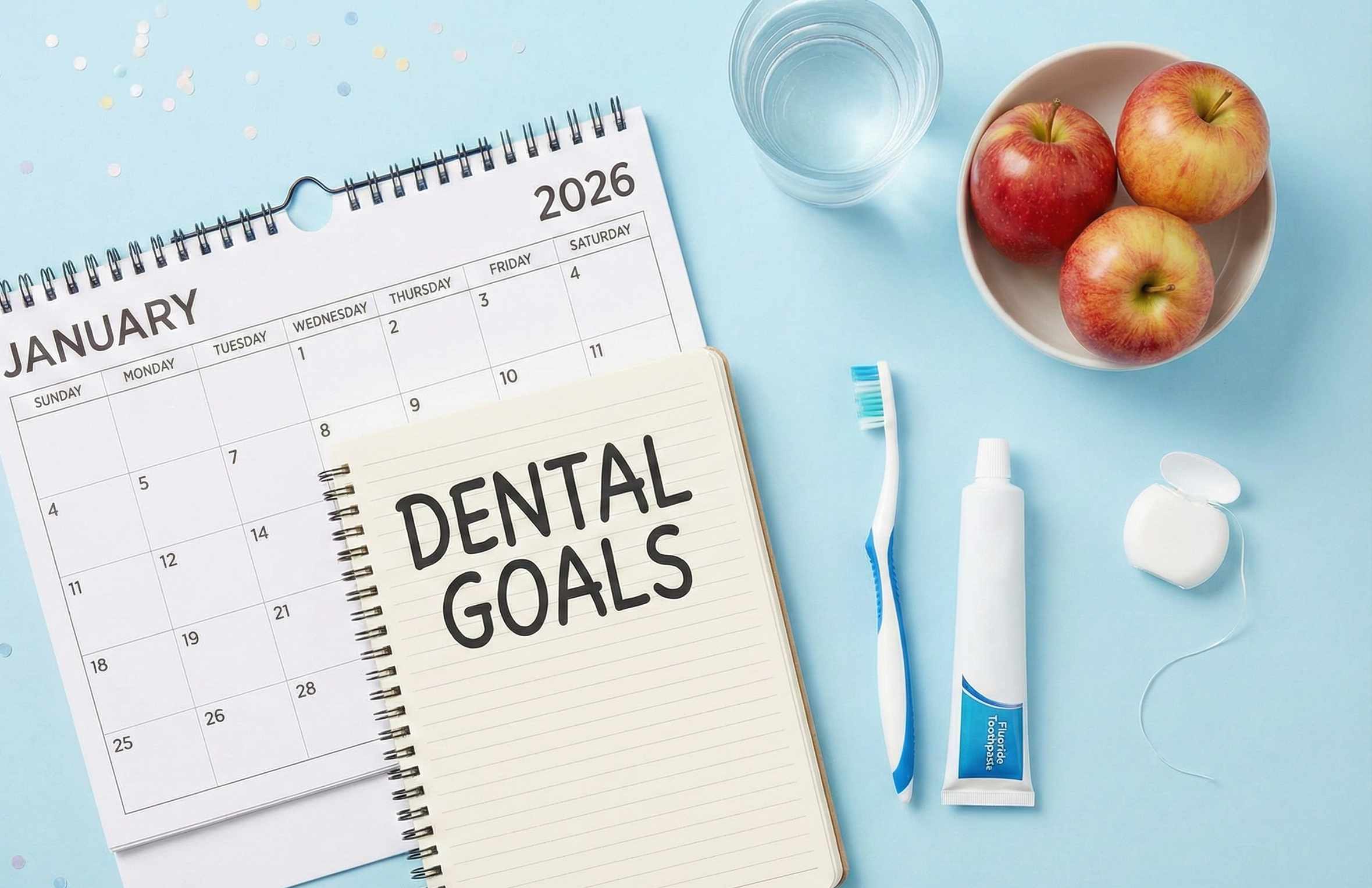Call our office at 416-932-2222 for immediate service or Dental Emergency Services (DES) at 416-485-7121 for 24-hour emergency dental care.
Dental emergencies can happen at the worst times – not that there is ever truly a good time for a chipped or knocked out tooth or sudden tooth pain!
Whether they occur during weekdays, on the weekend, while on vacation, or late at night, it is crucial to know the steps to take before visiting the dentist to rescue your smile. In this blog, we share important dental first aid tips in an emergency, things you should avoid doing, and when to call your dentist right away.
What to do in a dental emergency
Emergency dental issues can cause disruption, but knowing how to respond is critical in providing comfort and safety until you can get to a dentist. Here are some of the more common dental emergencies we see at Yonge Eglinton Dental, along with what to do before seeing the dentist.
Toothache
Sudden, sharp, throbbing pain in your teeth or gums can make chewing, speaking, or even smiling difficult. The best way to handle this type of emergency is to rinse the mouth out with warm salt water and gently floss around the affected area to remove any trapped food or debris. Avoid chewing on that side until you can access help from your dentist.
Chipped/broken tooth
With summer contact sports back in play, there is an increased risk of a tooth being chipped or broken. Clean the affected area with warm water, save any tooth fragments, and apply a cold compress if swelling occurs.
Knocked-out tooth
Few things are as jarring as having a tooth knocked out of your mouth. Fortunately, this does not necessarily mean there will be a gaping hole in your smile for the rest of your life. We recommend locating the tooth and picking it up by the crown (the part you chew with) and not the root. Rinse it gently with water, but avoid scrubbing it or removing any tissue fragments.
You can try to reinsert it into its socket gently; however, if this is not possible, keep the tooth moist with milk or saliva and seek immediate dental care.
Lost filling or crown
Although lost fillings or crowns are not technically considered emergencies, you should still take prompt action to prevent complications such as tooth decay or infection. If you can locate the attachment, gently clean it with warm water and attempt to reinsert it into place. Temporary dental cement or a denture adhesive can help secure it to your tooth. If you cannot locate the filling or crown, or reattachment causes too much pain, gently rinse your mouth with warm water to keep the area clean.
Make an appointment to visit your dentist as soon as possible, and be sure to inform them about any pain you are experiencing. Your dentist can also provide some recommendations on protecting the area from harm, such as using dental wax. Until your appointment time, avoid consuming sticky or hard foods.
Bleeding from a bitten lip or tongue or cheek injury
In most cases, this type of injury does not require emergency treatment but does necessitate an effective response. To stop the bleeding from the lips or tongue, apply direct pressure with a sterile cloth. If the bleeding does not stop relatively quickly, you should seek medical attention. In the event of a soft tissue injury to the cheek, apply pressure and ice.
What not to do in a dental emergency
Now that we know what to do in the event of a dental emergency, let us look at the aspects of dental emergencies that you should not do.
Do not ignore bleeding or swelling
Bleeding or swelling needs immediate attention. Apply a soft, clean cloth or sterile gauze to any bleeding areas to help stem the flow of blood. If there is swelling, hold a cold compress to the outside of the cheek.
Do not use Aspirin directly on the gum
Rubbing Aspirin directly against gums to alleviate pain might seem like a good idea, but in reality, you can cause more harm and trigger additional pain. Aspirin is an acid that can cause chemical burns to gums if applied directly. These chemical burns can be excruciating and take a considerable amount of time to heal. Even if there is no chemical burn, Aspirin’s acidic nature can still irritate the soft gum tissue.
There is no pain relief benefit to using Aspirin in this manner, so be sure to avoid doing it.
Avoid touching the roots of knocked-out teeth
When you pick up a knocked-out tooth for possible reattachment by you or your dentist, avoid touching the root. The root is very delicate, and touching it can damage the layer of tissue, known as the odontoblast layer, that is necessary for reattachment to the gums and bone.
Picking up and handling the tooth by the crown only will maximize the chances of successful re-implantation.
Do not delay calling your dentist
Be sure to contact your dentist as soon as possible for expert guidance on how to manage the emergency until they can see you for treatment.
When to call the dentist immediately
There will be instances where calling your dentist immediately is necessary to protect your dental health and overall well-being.
For example, any swelling or signs of infection should be reported immediately to prevent them from getting worse or, in the case of infection, spreading to other parts of your body. Furthermore, pain that prevents you from sleeping or eating should be brought to your dentist’s attention as soon as possible.
Also, contact your dental health care professional immediately in the event of a knocked-out tooth. The ideal time frame to reattach a knocked-out tooth is within 30 minutes to an hour of the injury. This is because the blood vessels, nerves, and tissues surrounding the tooth are damaged when it is knocked out of its socket. To prevent permanent damage that could hinder successful reimplantation, swift consultation with your dentist is necessary.
How to be prepared for a dental emergency
Feel free to add our number to your list of emergency contacts. Our team and our professional referral network of specialists are always ready with emergency dentist advice to help restore your smile in the event of an urgent dental need, although we hope you never need to!
Call the dental experts at Yonge Eglinton Dental for emergency dental care in Toronto
Contact our dental health team when you are ready to optimize your oral health. We will work together to ensure your teeth and gums look great and are as strong and healthy as possible. Make an appointment for an office visit today by calling our office at 416-932-2222 or booking online. We look forward to seeing you!
Are you concerned about visiting the dentist? Read about how we protect the health and safety of our patients and staff so your family can seek proper dental care with peace of mind.








